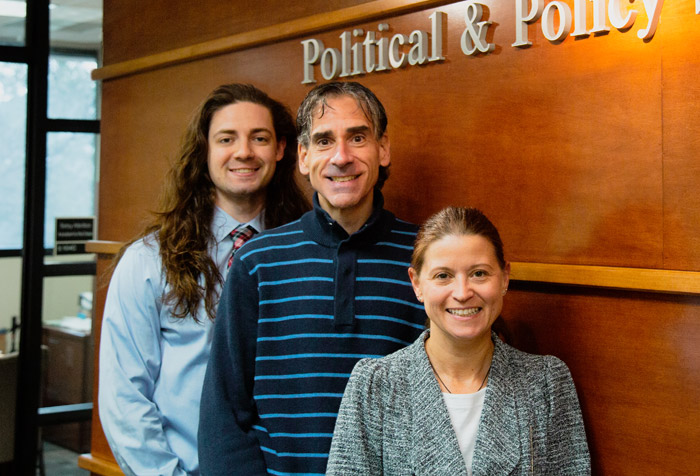Study Finds No Acceleration in Crime from Formula 1 Race
By: Melissa Cutler | Feb. 19, 2020
A new analysis from The University of Texas at Dallas shows there is no evidence to suggest that crime increases when the Formula 1 United States Grand Prix arrives in Austin, Texas.

“As the event rolls around every year, it’s not uncommon to hear calls for law enforcement to be stepped up in the face of suspected increases in crime,” said Dr. Alex Piquero, Ashbel Smith Professor of criminology in the School of Economic, Political and Policy Sciences and director of social impact research at UT Dallas. “However, the numbers don’t bear that out. We found that crime rates, including property crimes, violent crimes and sex-related offenses, did not increase in the weeks before, during or after the event.”
The research is the most extensive academic look to date at the crime potential for a Formula 1 Grand Prix event, which attracts on average 200,000 attendees per weekend. Piquero’s findings were recently published online in the Journal of Experimental Criminology. Data was gathered from daily crime reports from the Austin Police Department’s website from Sept. 1, 2018, through Nov. 30, 2018. This time period was 48 days before and 39 days after the race weekend, which was enough time to observe and analyze trends, Piquero said. The research team used a tracking tool on the department’s website that showed racing events and the type of crime committed, if any, on any given day.
The types of offenses studied were related to six human- and sex-trafficking crimes such as aggravated promotion of prostitution, compelling prostitution, kidnapping, prostitution, aggravated kidnapping and trafficking of persons. The data was aggregated into a daily sex/human trafficking index. Research indicated there was one such illegal act reported during the three months studied.

“On Oct. 19, 2018 [two days before the race], a single case of aggravated kidnapping was reported, and an arrest was made. According to the specific offense information, the crime happened 12 miles away — a 20-minute drive from Circuit of The Americas (COTA), where the race takes place. Further, only one assault by contact occurred closer to the venue on the Saturday of race weekend,” Piquero said.
He and his colleagues studied the international race in Austin for two reasons. The first was because U.S. cities maintain accurate, reliable crime data compared to other Formula 1 race locations around the world. The second was because Texas law requires that COTA managers submit a human (sex) trafficking plan as part of an overall emergency action plan in order to receive a sizable subsidy to help defray the costs of hosting the race.
“Specifically, our analysis showed that violent, property and sex/human trafficking-related offenses did not increase as a result of the F1 race weekend. This is especially noteworthy in regard to sex/human trafficking-related offenses, which was of significant concern for public officials,” Piquero said.
“The findings of this study should provide some comfort to the public that the event can be considered safe, at least from a human-trafficking perspective.”
Dr. Alex Piquero, Ashbel Smith Professor of criminology in the School of Economic, Political and Policy Sciences
Although the study did not find the event increased crime, the data also did not include nonreported and undetected offenses. Sex crimes are notoriously underreported, Piquero said, but the study is a step toward clarifying whether crime patterns can be discerned at Formula 1 events over time. Future research will focus on the potential differences between auto racing and other mega-sporting events, which also carry this stigma.
“The findings of this study should provide some comfort to the public that the event can be considered safe, at least from a human-trafficking perspective,” Piquero said. “Now that we have a baseline for 2018, we can use those numbers to conduct analysis for every year after that.”
UT Dallas co-authors of the study included Dr. Nicole Leeper Piquero, Robert E. Holmes Jr. Professor of Criminology and associate vice president for research development at UT Dallas, and criminology doctoral student Jordan Riddell.
Media Contact:
Melissa Cutler, UT Dallas, 972-883-4319, melissa.cutler@utdallas.edu, or the Office of Media Relations, UT Dallas, (972) 883-2155, newscenter@utdallas.edu.





